 You may have been wondering when and who would point out the silver lining in the current situation, where the interruption of decades of mass immigration has seen employment prospects and living standards for many ordinary people looking good in Australia for the first time in decades. If so, you will be very pleased to catch the following interview between 2GB's Michael McLaren and the Sustainable Australia Party's William Bourke, on this very issue. We are living through fascinating times.
You may have been wondering when and who would point out the silver lining in the current situation, where the interruption of decades of mass immigration has seen employment prospects and living standards for many ordinary people looking good in Australia for the first time in decades. If so, you will be very pleased to catch the following interview between 2GB's Michael McLaren and the Sustainable Australia Party's William Bourke, on this very issue. We are living through fascinating times.
On 10 May 2021, Michael Mclaren (2GB radio) was joined by William Bourke, President of the Sustainable Australia Party, to comment on the RBA’s report that suggests that the pause in immigration due to the COVID-19 pandemic will lead to higher living standards in Australia and could spark wage rises in some regions and industries - even though the economy will be smaller than previously expected. In its quarterly statement on monetary policy the preceding week, the RBA noted, “The Australian economy is transitioning from recovery to expansion phase earlier and with more momentum than anticipated.”
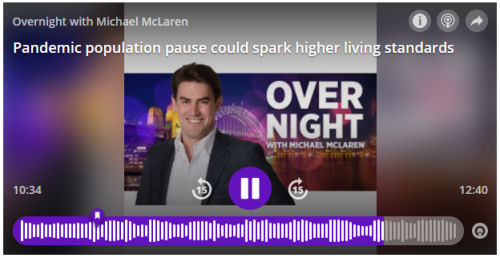
Transcript
[Candobetter editor: Note that this was done via automatic transcript then corrected by a human editor. Please let us know if you find any mistakes.]
MICHAEL : Well, there has been a lot of side-effects from the Cornona Virus … we’re probably all sick to death of talking about it but, one that probably hasn’t been mentioned is that it has done a couple of people probably out of a job – at the very least, it has proved them right – I’m talking about the team behind the Sustainable Australia Party – because, if nothing else, COVID has closed the borders. There are now no real prospects of masses of migrants coming in to work or to fill job vacancies, or whatever the story was, prior to the pandemic.
However, as I said, I think it has proved the point, because, for many years, William Bourke and the whole team behind him at Sustainable Australia and people like Dick Smith, who’ve supported them, have been banging the drum of logic, saying that Australia does not need unsustainable levels of growth in the population to remain wealthy, to remain prosperous, indeed to grow.
And, sure enough, they have now got an ally, I don’t know if they meant to or not, in the form of the Reserve Bank. In their quarterly statement, on monetary policy – it was released on Friday - most people don’t read it of course – but they made the point that the level of GDP – Gross Domestic Product – is expected to remain a little below forecast before the pandemic – mostly due to the lower population growth – however, in per capita terms, GDP is expected to be on a higher trajectory, supported by higher per capita household income and a strong contribution from public demand. In other words, the pause to Big Australia will lead to higher living standards and could spark wage-rises in some regions and some industries according to the Reserve Bank.
Now, the Big Australia advocates said this was impossible. Many of us said they were wrong all along and motivated by greed.
Well, William Bourke is the President of the Sustainable Australia Party and on the line. William, nice to talk with you again.
WILLIAM BOURKE: Good to be with you, Michael.
MICHAEL: Sadly, I suppose, COVID has done you out of a gig. The borders are closed. The population will flatline for a while, and the experiment that you’ve called for will happen, for no other reason than medical science has demanded it happens. I suppose, if you are proved right, you will go out a happy man, won’t you?
WILLIAM BOURKE: Well Michael, obviously population growth is something we’ve been concerned about, since we’ve been going – probably a decade or so. We’ve got some other issues we do stand for, overdevelopment and environmental issues, but yes, absolutely, it’s amazing that COVID has revealed, once and for all, that high immigration is notnecessary to either keep the economy growing, or to create jobs.
So, it’s great to see the RBA coming to their senses. And many other mainstream economists are also saying things like, ‘Lower immigration is equalling higher wages.’ So there’s a great lot of things that are coming out of this unfortunate COVID pandemic.
MICHAEL MCLAREN: And it’s logical, is it not, because, when you flood the economy with workers, obviously the whiphand is that of the bosses. They can say to Bob, well, if you don’t want to work for that amount of money, I’ll go over there to Frank. He’ll do it. But when the number of people available for jobs is smaller, Bob and Frank both start, all of a sudden, to have a bit of bargaining power, don’t they!
WILLIAM BOURKE: Indeed, and obviously, when you bring in highly exploitable people, who really don’t have a lot of bargaining power, who aren’t part of … I guess, unions and so forth, then you can beat down wages. And we’ve seen a lot of – you know – probably the lowest growth in wages over the last decade in the last century.
These things are now starting to see a pick-up in wages, and that’s a good thing for the average Australian.
MICHAEL MCLAREN: They are. I saw that Tom Dusevic of the Australian said, and I quote,
”During recent years, when population growth averaged a rich, world-leading, one and a half per cent a year [...]"
- which is just madness -
“with two thirds of it due to net-overseas migration, per capita incomes fell, even though national output was expanding at a fast clip, compared to our peers.”
In other words, the nation was getting wealthier – that’s National GDP, the individuals that make up the nation, that do the work, were actually going backwards.
WILLIAM BOURKE: Exactly, and the point there being that GDP per capita is really the proxy for living standards. So, the aggregate growth in GDP really doesn’t matter, if all of us are going backwards on average. And we know that there has been a lot of discussion about, you know, this 20 plus year run of ‘no recessions’ and so forth, but if you look at it on a GDP per capita basis, there were three recessions over the last 25 or so years, where GDP per capita went backwards, two quarters in a row. So, there’s a lot of misinformation out there, and we really need to look at the per capita of GDP, not the aggregate level.
MICHAEL MCLAREN: Yep. Now, none of this is to gloat. There are some sections of the economy which are doing it particularly difficult. The business model was heavily reliant on the migrant labour workforce. Hospitality, for example, their business model has been disrupted. A lot of people are doing it tough, but on a per capita basis, the average Australian looks like they may come out in front. And, of course, again, to be completely up-front, a huge amount of stimulus from the Federal Government also helps in that respect, and to remove that might have created a different story, but it just goes to prove the point, does it not, William, that you don’t need record levels of migration to continue economic growth?
WILLIAM BOURKE: That’s exactly the point. There’s a lot of studies out there about the impact of immigration on the economy, but a lot of it is based on, you know, assumptions. This is empirical evidence. This is very very very clear now, that where there is no immigration, we are still growing our economy and we are still creating jobs, and we have actually reduced the unemployment rate. So we’ve gone from seven odd per cent down to about five and a half per cent, and we look like going down to around four and a half per cent. That’s because a lot of people who have been long-term unemployed are now getting an opportunity to get a job. And isn't that a great thing?
MICHAEL MCLAREN: Well, it is and the tighter labor market Also pushes an important extra emphasis on behalf of government, and even business, on the issue of skills or re-skilling the Australian population, including those that are unemployed.
Most unemployed people want to work. They take they take no pride in not having a job but they may not have the skills to do it, so, you know, it's great. We've got the budget, of course tomorrow night. There may be something in there about this too, but there is a greater emphasis on business and government to say, well, look, you're not going to get the fresh blood in anytime soon. There is a bit floating around here though that needs a gig. Train them up, get them in a job.
WILLIAM BOURKE: There's a much greater focus on training and education as you say Michael and I'm sure that Treasurer Josh will be mentioning much more investment in training and education in the budget, and I've seen, you know, some media reports to that extent. So that's it. That's a really encouraging thing, because at the end of the day, we do have the labour here in Australia. We do need to continue to evolve our economy and evolve our skills. And that's what's happening right now, and it's a good thing.
MICHAEL MCLAREN: And, Will, to add to all of this, the re-emphasis, or the newly emerged emphasis, on needing to be more self resilient, more independent, instead of relying on international supply chains and there. And, there again, all of a sudden, you are incentivising people to re-establish, or freshly establish, sovereign industries in this country, particularly manufacturing-oriented industries, which – again - will help mop up a percentage of the unemployed.
WILLIAM BOURKE: Exactly right. And, at the moment, you're probably aware, the Upper Hunter by-election is on in New South Wales. We've got a candidate running there and he works on the railways.
He's an engineer working on railway maintenance and, you know, we built the Tangara trains in Newcastle, you know, the Hunter area and now we're importing them from South Korea. So we need to turn back to making our own trains. And manufacturing, you know, our medical supplies. All of those issues that we thought we can just outsource overseas. I think we're now realizing finally that that's not a sustainable way to run an economy.
WILLIAM MCLAREN: Why then for so many years, we mention those record levels of immigration, despite the average Australian not wanting it. People are in favor of some immigration, sure, a bit of fresh blood doesn't hurt, but there's sort of nonsense of one-and-a-half percent growth per year. It was just a disaster on the property , on traffic – everything. Services. Why did it persist for so long? I mean, I'm a bit ignorant, I suppose, but I thought that democracy was basically the elected officials representing the will of the people, but on that issue, it couldn't have been more opposite. So, why did it persist for so long?
WILLIAM BOURKE: So, I think Michael there are some groups in our society, in our economy, in our political environment, they have a little bit more power than the average person. And obviously, you know, the property industry, you know, big business and so forth. You know, they have a fair bit of sway. They've been complaining, even very lately about skills shortages and, Immigration Minister Alex Hawk, has just allowed a doubling of the hours of foreign students from 20 to 40 hours a week. So they're having a lot of influence, you know, because of political donations and other aspects of the body politic. And I guess that it would be nice if we did have a plebiscite or a referendum. Do we want to grow our population at this extreme rate of 1.5 plus percent when the developed world really should grow at, you know 0.2 per cent at the most.
MICHAEL MCLAREN: I was a little facetious early when I said that covid had probably done you out of a gig. Sustainable Australia, as you quite rightly said, stands for more than just a population issue. Just talk us through a little of what else it is that interests your party.
WILLIAM BOURKE: Well, we're a fairly centrist party Michael. So, you know, we talk about the big picture issues that matter. Obviously sustainable is about protecting our environment, and we really do want to make sure that, you know, we're not sprawling our suburbs, over our agricultural farm land. For example, we really want to stop overdevelopment and return planning powers to local communities.
I'm running in the North Sydney council elections in a couple of months. So, you know, making sure that local people have a say on the character of and the heritage values of their neighborhood. So those are some of the issues.
Corruption is an increasingly big issue that we're focusing on and I think there's a bit of corruption in this Big Australia, where vested interests are influencing our politicians rather than the public interest being put first. So that's just a couple of things that we stand for.
MICHAEL MCLAREN: A lot of common sense. Always good to talk to you. We’ll speak again, soon, William. Thank you so much for all that time.
WILLIAM BOURKE: Thanks for having me. Michael.
MICHAEL MCLAREN: That's my pleasure William Burke. As I said the President of the Sustainable Australia Party

 You may have been wondering when and who would point out the silver lining in the current situation, where the interruption of decades of mass immigration has seen employment prospects and living standards for many ordinary people looking good in Australia for the first time in decades. If so, you will be very pleased to catch the following interview between 2GB's Michael McLaren and the Sustainable Australia Party's William Bourke, on this very issue. We are living through fascinating times.
You may have been wondering when and who would point out the silver lining in the current situation, where the interruption of decades of mass immigration has seen employment prospects and living standards for many ordinary people looking good in Australia for the first time in decades. If so, you will be very pleased to catch the following interview between 2GB's Michael McLaren and the Sustainable Australia Party's William Bourke, on this very issue. We are living through fascinating times. 
 You probably would have noticed the media attention given to the Australian economies historic 26 year reign of economic growth which has been claimed is breaking that held by the Netherlands. Apart from being incorrect, (The Netherlands’ real GDP declined by 0.3% in the June quarter of 2003, and by 0.01% in the September quarter of that year) that record should go to Japan. In fact, if Japanese GDP data were available on a quarterly basis earlier than 1960, it’s likely that this run of continuous economic growth would have been even longer, perhaps as long as 38 years, inferring from annual data available back to 1955. Not bad for a nation mocked for its decision to abandon population growth and actually reduce its population.
You probably would have noticed the media attention given to the Australian economies historic 26 year reign of economic growth which has been claimed is breaking that held by the Netherlands. Apart from being incorrect, (The Netherlands’ real GDP declined by 0.3% in the June quarter of 2003, and by 0.01% in the September quarter of that year) that record should go to Japan. In fact, if Japanese GDP data were available on a quarterly basis earlier than 1960, it’s likely that this run of continuous economic growth would have been even longer, perhaps as long as 38 years, inferring from annual data available back to 1955. Not bad for a nation mocked for its decision to abandon population growth and actually reduce its population.


 The Japanese government has recently announced power supply "options," which it says will be used as a basis for a "national debate," the outcome of which will be reflected in the formulation of a new Basic Energy Plan. But what is it about the deceptive methodology of the "options" that always leads to the conclusion that nuclear power is "necessary"...?
The Japanese government has recently announced power supply "options," which it says will be used as a basis for a "national debate," the outcome of which will be reflected in the formulation of a new Basic Energy Plan. But what is it about the deceptive methodology of the "options" that always leads to the conclusion that nuclear power is "necessary"...?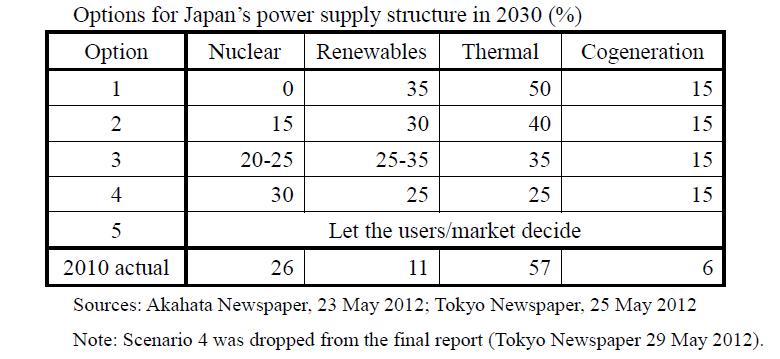
 Are you a young engineer or a self-driven real-estate student? Do you want a job in international development aid? Would you know how to promote modern land-titles to aborigines in central Australia and to peasants in Bangladesh? Would you be interested in bringing modern jobs to self-sufficient villagers in Africa? Could you help plan how to modernise New Guinea village systems and promote land-sales among islanders with thousands of years old village systems? Do you want to be an international expert bringing progress and economic growth to underdeveloped places? Check these pages to see where your ambition, drive and knowledge may lead and what good you may bring to the world!
Are you a young engineer or a self-driven real-estate student? Do you want a job in international development aid? Would you know how to promote modern land-titles to aborigines in central Australia and to peasants in Bangladesh? Would you be interested in bringing modern jobs to self-sufficient villagers in Africa? Could you help plan how to modernise New Guinea village systems and promote land-sales among islanders with thousands of years old village systems? Do you want to be an international expert bringing progress and economic growth to underdeveloped places? Check these pages to see where your ambition, drive and knowledge may lead and what good you may bring to the world!
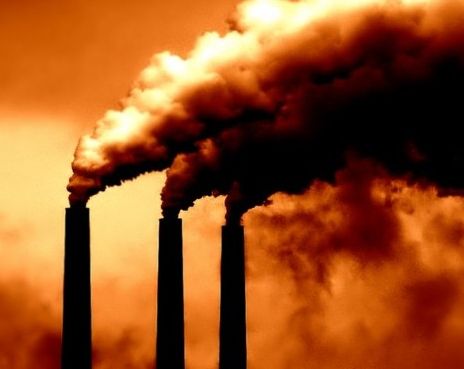 Unless there's economic growth, we're not making progress
Unless there's economic growth, we're not making progress


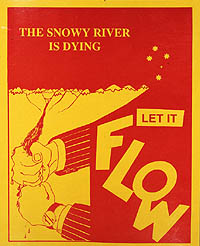
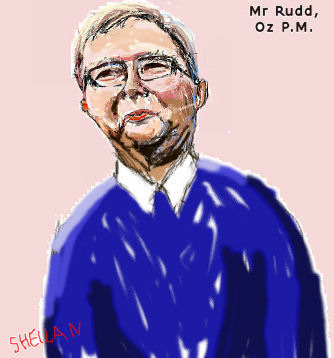
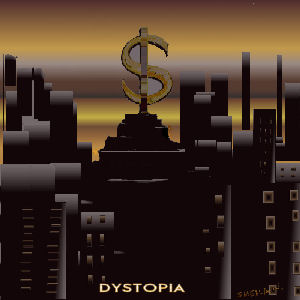
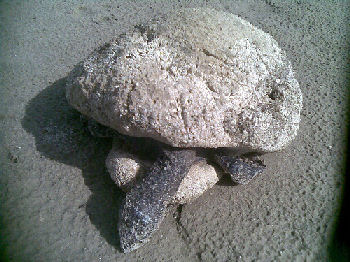
 Volunteers cleaning victims of worm and market-logic
Volunteers cleaning victims of worm and market-logic
 Tim Murray, 1 Jun 08
Tim Murray, 1 Jun 08
Recent comments